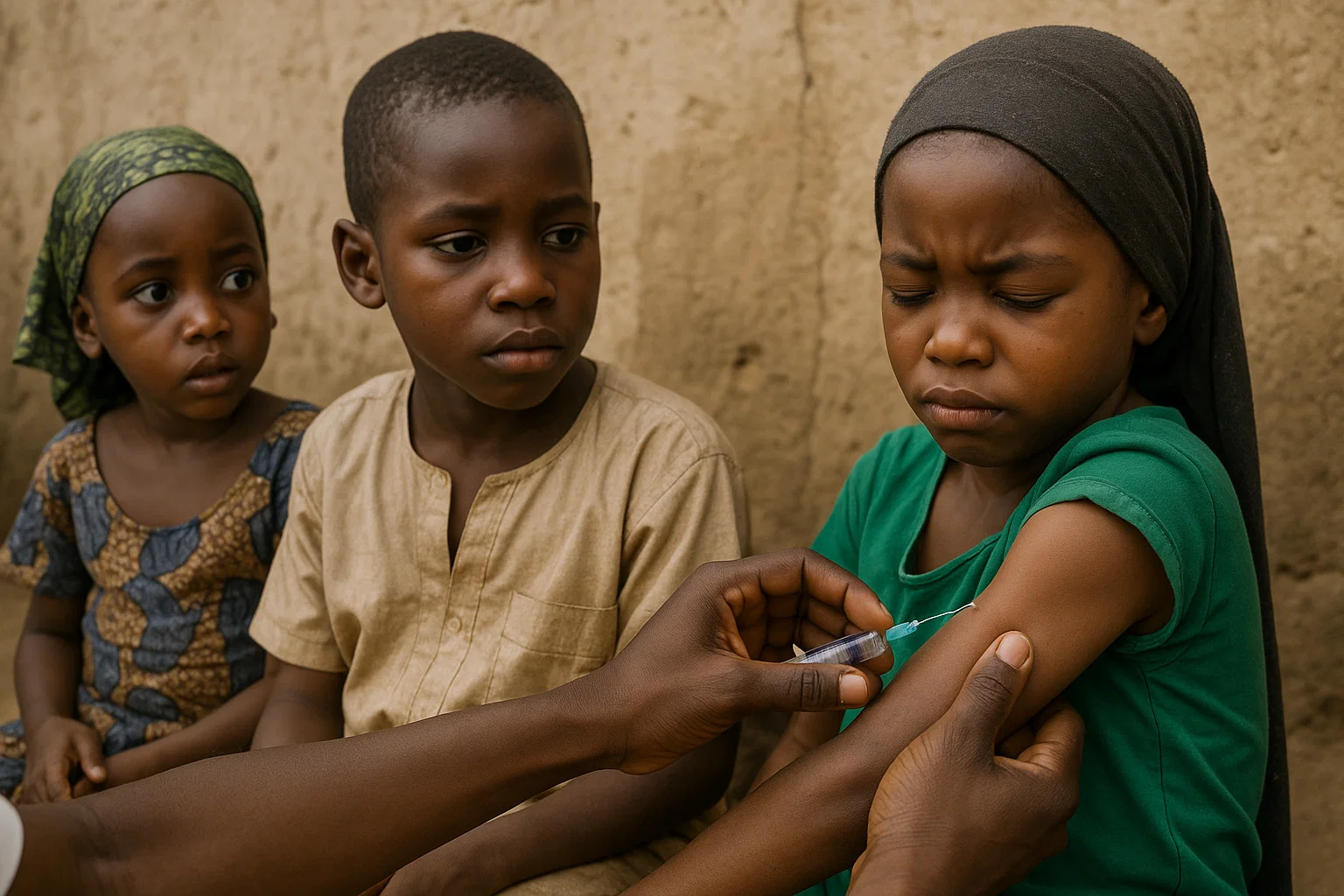HEALTH

KANO TO VACCINATE 7M CHILDREN IN MEASLES-RUBELLA, POLIO CAMPAIGN
Kano State will on October 6 launch a massive vaccination campaign targeting more than seven million children with measles-rubella and polio vaccines.
The announcement was made on Monday by Dr. Ahmad Tijjanu Habibu, Director of Disease Control at the Kano State Primary Healthcare Management Board, during a media dialogue on the upcoming exercise.
“This is a very important dialogue because the media are our friends, and this campaign is unique. We have never had such a campaign in the history of Nigeria. It is the largest campaign in the whole of sub-Saharan Africa,” Habibu said.
He explained that while Nigeria aims to vaccinate about 106 million children nationwide, Kano alone is targeting over seven million. The integrated campaign will deliver multiple vaccines in one package, including routine immunization, hepatitis, HPV, polio, and treatment for onchocerciasis, a neglected tropical disease (NTD).
“The reason for this integration is to increase efficiency, save costs, and reduce the burden of numerous campaigns on the public. Instead of organizing separate campaigns one after the other, this approach allows us to deliver everything at once,” he noted.
Habibu also stressed the importance of public awareness, highlighting that each vaccine has a different target age group. Routine immunization will cover children aged 0 to 23 months, measles-rubella targets those from 9 months to 14 years, while polio vaccination is for children under five. For onchocerciasis in six local government areas, children above five years will be targeted.
Speaking on the introduction of the measles-rubella vaccine, he explained:
“We previously used the measles vaccine alone, but research shows that despite vaccination, some children still develop measles, though in a milder form. This has been linked to rubella, which is why the new vaccine combines both.”
Rahama Rihood, Chief of UNICEF Field Office in Kano, added that the campaign is being organized in collaboration with the Federal Ministry of Health, the National Primary Health Care Development Agency (NPHCDA), WHO, Gavi, the Bill and Melinda Gates Foundation, civil society organizations, and the Kano State Government. Implementation will use fixed posts, temporary posts, and sweep teams.
He said the national exercise will take place in two phases across all 36 states, with Kano among the first batch of states to commence. He also commended Kano’s progress in reducing polio cases from 31 in 2024 to three in 2025 but emphasized the need for stronger efforts to achieve full eradication.
“With only two months until December, the agreed date for achieving this goal, UNICEF calls on the Kano State Government and LGAs to intensify efforts, release counterpart funds promptly, and sustain strong supervision of the campaign,” he urged.
Also speaking, Maryam H. Umar, the Kano State Coordinator of the NPHCDA, underscored the critical role of the media in ensuring the campaign’s success.
“Our message is clear. We depend on you, the media, to share accurate information about vaccine benefits and target age groups. We also rely on you to mobilize communities, dispel myths, and encourage vaccine uptake, especially in hard-to-reach areas,” she said.
The 10-day campaign, which may be extended by two days, will run from October 6 to 16 across Kano State.
"This represents a significant development in our ongoing coverage of current events."— Editorial Board









